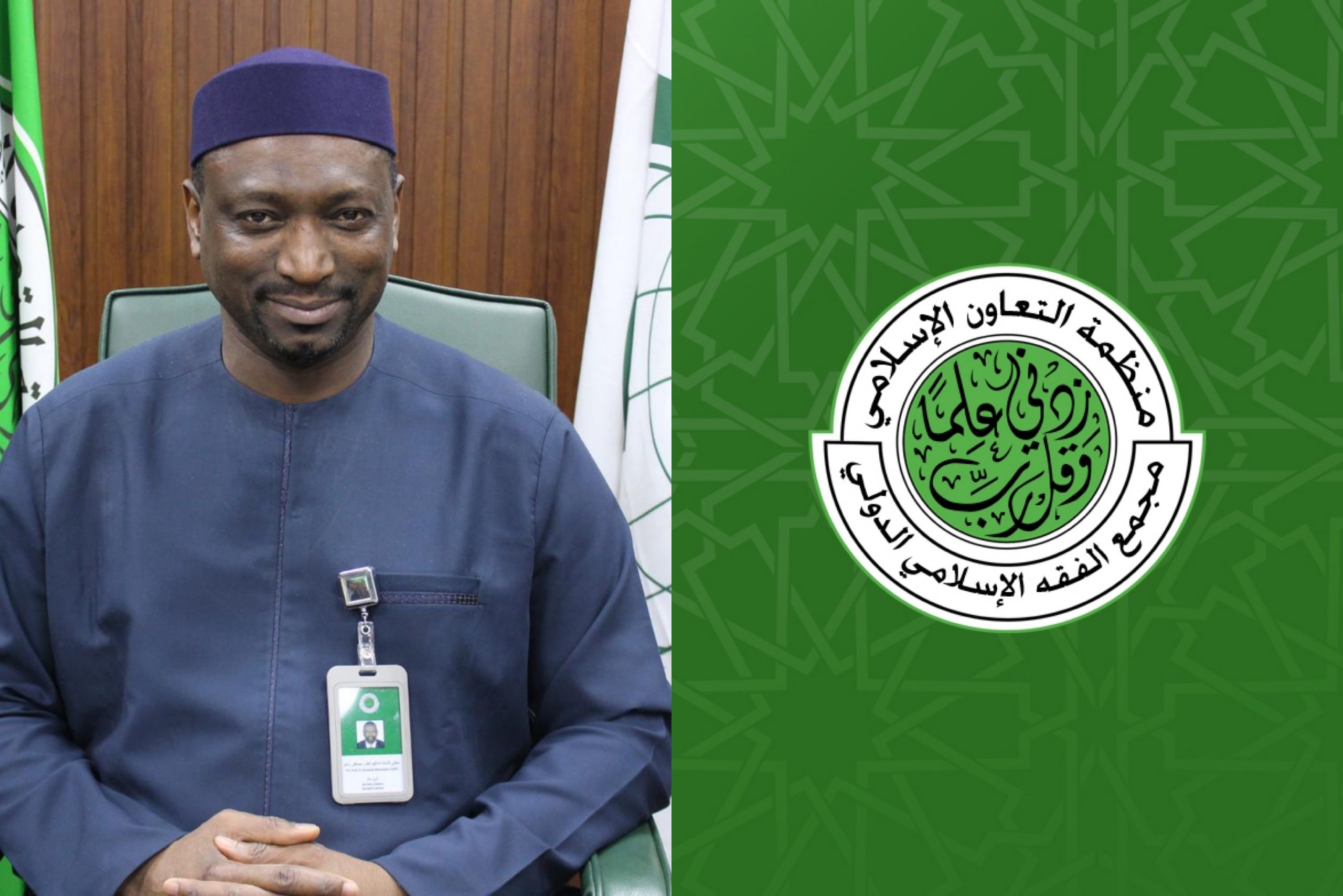
In the name of Allah, the Entirely Merciful, the Especially Merciful
Praise be to Allah, Lord of the Worlds, and Blessing and Peace be upon our master Mohamed, the Last Messenger, on his family, on his companions, and on all those who follow him until the Day of Judgment.
Conscious of its role as the global leading jurisprudential reference for the Islamic Ummah, of its intellectual responsibility towards the various issues of the Ummah, and its duty to clarify the Shariah provisions on the current issues and contemporary life problems and other matters of concern to all mankind, while basing itself on the Holy Qur’an, the Noble Sunnah of the Prophet (PBUH) and the rich Islamic heritage,
The International Islamic Fiqh Academy of the Organization of Islamic Cooperation is committed to clarify the Shariah rulings concerning the two topics mentioned in the title above.
First: Shariah ruling regarding the taking of the available Covid-19 vaccines for fasting people during the days of Ramadan
According to Shariah, it is permissible for the fasting person to take the available Covid-19 vaccines during the days of Ramadan, and it does not invalidate his fasting, as non-nutritive subcutaneous or intramuscular injections are not considered as an invalidator of fasting according to a legal consensus.
The International Islamic Fiqh Academy has previously issued a resolution (no. 93 (1/10) at its tenth annual session in Jeddah, Saudi Arabia, in 1418H (1997AD), regarding the breaking of the fast in the field of therapeutics, which reads as follows:
“The following are not considered breaking the fast: subcutaneous, intramuscular or intravenous therapeutic injections, except for liquids and nutritional injections.”
Second: Shariah ruling on the precautionary measures taken by the government of the Kingdom of Saudi Arabia towards visitors of the two Holy Mosques during Ramadan
The International Islamic Fiqh Academy affirms that the precautionary measures and health guidelines taken by the government of the Kingdom of Saudi Arabia, which stipulate requirements for visitors of the two Holy Mosques of Mecca and Medina during this holy month, including the taking the Covid-19 vaccines, are considered legitimate. Any person who goes to the two Holy Mosques for Umrah, for prayer or for visiting, must comply with these measures and not transgress them, considering them to be necessary precautions based on well-considered interests and on the preservation of the essential purposes of the Shariah, which are imperative for establishing the essentials of religion and the welfare of the world, the main objective of which is the preservation of life.
The International Islamic Fiqh Academy has previously issued a resolution in this regard authorizing the ruler (government) to require people to take preventive measures, which nowadays include vaccines if the general interest so requires, following the agreed-upon Shariah maxim stipulating that “the ruler’s decisions are based on safeguarding the general interest”.
The following is an excerpt from the Academy resolution (No. 67 (7/5) at its seventh session in Jeddah, Kingdom of Saudi Arabia, in 1412H (1992AD), concerning medical treatments:
“The ruler (government) has the right to require citizens to take medication in certain cases, such as infectious diseases and preventive vaccinations.”
Accordingly, it is a Shariah obligation for all those who visit the two Holy Mosques during Ramadan to comply with these guidelines and precautions aimed at achieving the objective of preserving life in particular, and the rest of the necessary objectives in general, such as the preservation of religion, progeny, intellect, and property.
Third: The International Islamic Fiqh Academy congratulates Muslims worldwide on this holy month and calls upon all of them to fully comply with health guidelines and precautionary measures issued by their rulers, governments, authorities and health directorates within their countries and communities when practicing their religion such as salah (regular prayer), fasting, distribution of Zakat and charities, and iftar (break-fast meal).
The Academy also calls upon all Muslims to cooperate constructively and responsibly with the health authorities and departments to combat the Covid-19 pandemic and refrain its spread.
Finally, we ask Allah, the Almighty Healer – to lift this affliction from us and the whole world and to hasten this pandemic’s end from humanity and all countries as soon as possible.
May Allah’s blessings and peace be upon our master Mohamed, on his family, on his companions, and all those who follow until the Last Judgment.
Prof. Koutoub Moustapha Sano
Secretary General of the International Islamic Fiqh Academy
Jeddah, 01 Ramadan 1442, corresponding to 13 April 2021
Read Also
Lastest








